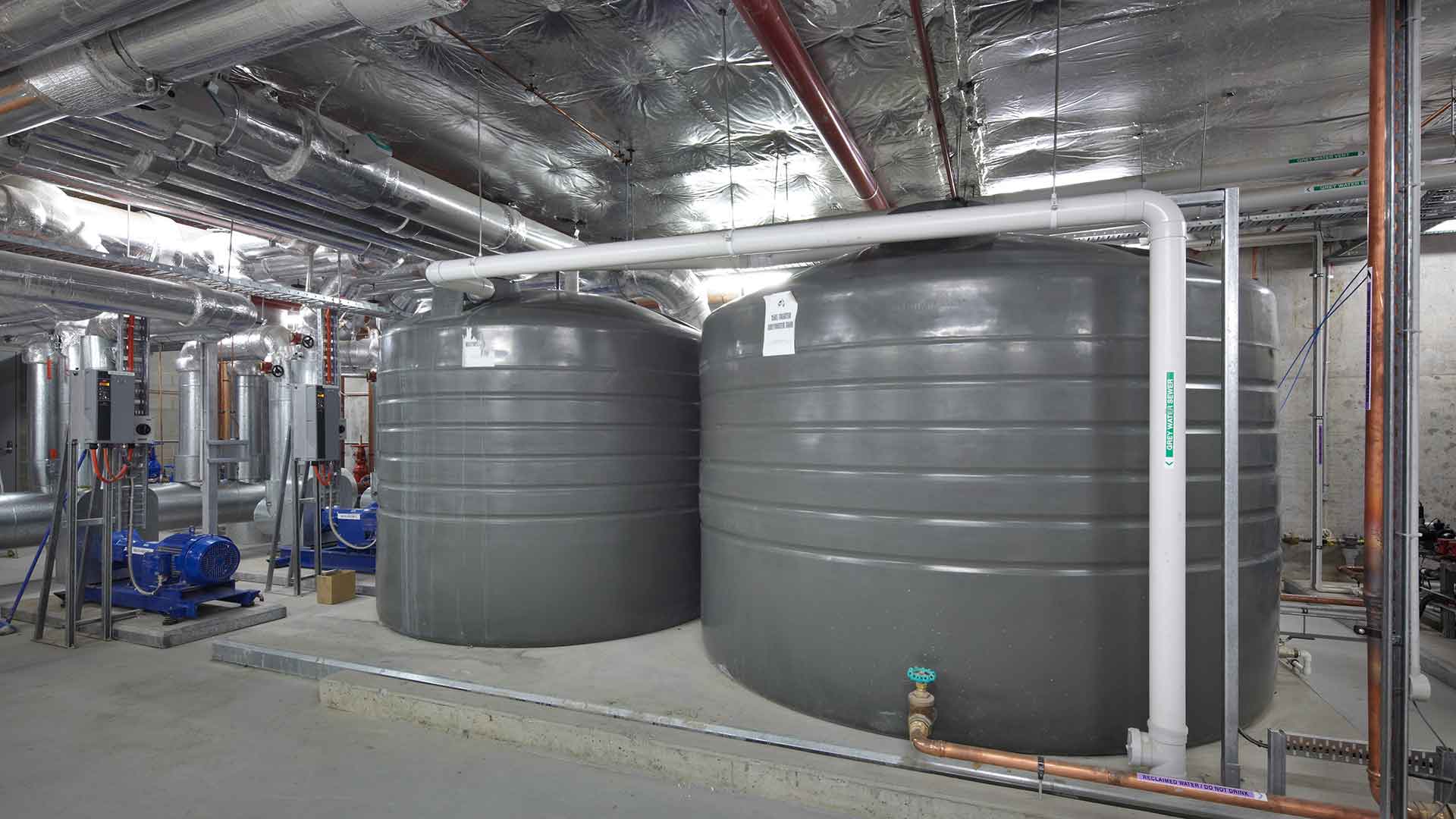Water

RMIT is committed to reducing water use intensity across our campuses, through a focus on efficiency, harvesting and reuse.
Hydration stations and drinking fountains have been installed across our campuses to make it easy to refill your own bottles. Our hydration stations can be found in all kitchenettes and student break out spaces. The bold yellow graphics on the stations show which were designed by an RMIT student.
RMIT uses the Design Standards to drive decision making around water efficiency. Including setting minimum standards fixtures, water capture and storage and water sensitive urban design in landscaping .
RMIT has installed over 1,500 water-efficient fixtures and fittings throughout our buildings, including taps, dual-flush toilets, low flow shower heads and kitchen sprays.
Water Sensitive Urban Design is a key feature of our Bowen Street landscaping and Brunswick Landscape Master Plan. Look out for our rain gardens on Bowen Street.
We have undertaken major water harvesting initiatives on campus, installing rainwater, greywater, fire water testing reuse storage tanks.
RMIT has a total capacity of 1.3 million litres of on-site storage tanks, reducing requirements for potable water usage.
There are tanks hidden (and not so hidden) all over campus to harvest rainwater. Once successfully captured and stored this water is then typically used for toilet flushing and landscape irrigation applications

We have installed 40 smart meter devices across our buildings, giving real-time access to water consumption.
At the Bundoora West campus, RMIT extracts excess water from an on-site catchment pond, distributing the water through the campus for garden bed irrigation purposes. By design, the pond will not be extracted below a minimum volume to ensure the area can remain a viable habitat for local wildlife.
Acknowledgement of Country
RMIT University acknowledges the people of the Woi wurrung and Boon wurrung language groups of the eastern Kulin Nation on whose unceded lands we conduct the business of the University. RMIT University respectfully acknowledges their Ancestors and Elders, past and present. RMIT also acknowledges the Traditional Custodians and their Ancestors of the lands and waters across Australia where we conduct our business - Artwork 'Luwaytini' by Mark Cleaver, Palawa.
Acknowledgement of Country
RMIT University acknowledges the people of the Woi wurrung and Boon wurrung language groups of the eastern Kulin Nation on whose unceded lands we conduct the business of the University. RMIT University respectfully acknowledges their Ancestors and Elders, past and present. RMIT also acknowledges the Traditional Custodians and their Ancestors of the lands and waters across Australia where we conduct our business.